June 6, 2025 | 16:33 GMT +7
June 6, 2025 | 16:33 GMT +7
Hotline: 0913.378.918
June 6, 2025 | 16:33 GMT +7
Hotline: 0913.378.918
On June 4 (local time), in Columbus, Ohio, the working delegation led by Minister Do Duc Duy continued to achieve many concrete and positive results during their official visit and working trip to the U.S.
A highlight of the series of activities was the Vietnam-Ohio agricultural business connection forum. At this event, businesses and industry associations from both sides engaged in in-depth discussions about the potential for cooperation and signed Memorandums of Understanding (MOUs) worth over 600 million USD related to the import of animal feed raw materials from Ohio.
Notably, at the forum, representatives from four leading U.S. business associations shared profound insights on their vision and strategies for agricultural trade cooperation with Vietnam. The Vietnam Agriculture and Nature Newspaper shares a brief of messages from Ohio’s key industry associations addressed to Vietnam, aiming to promote bilateral agricultural and food trade relations further.
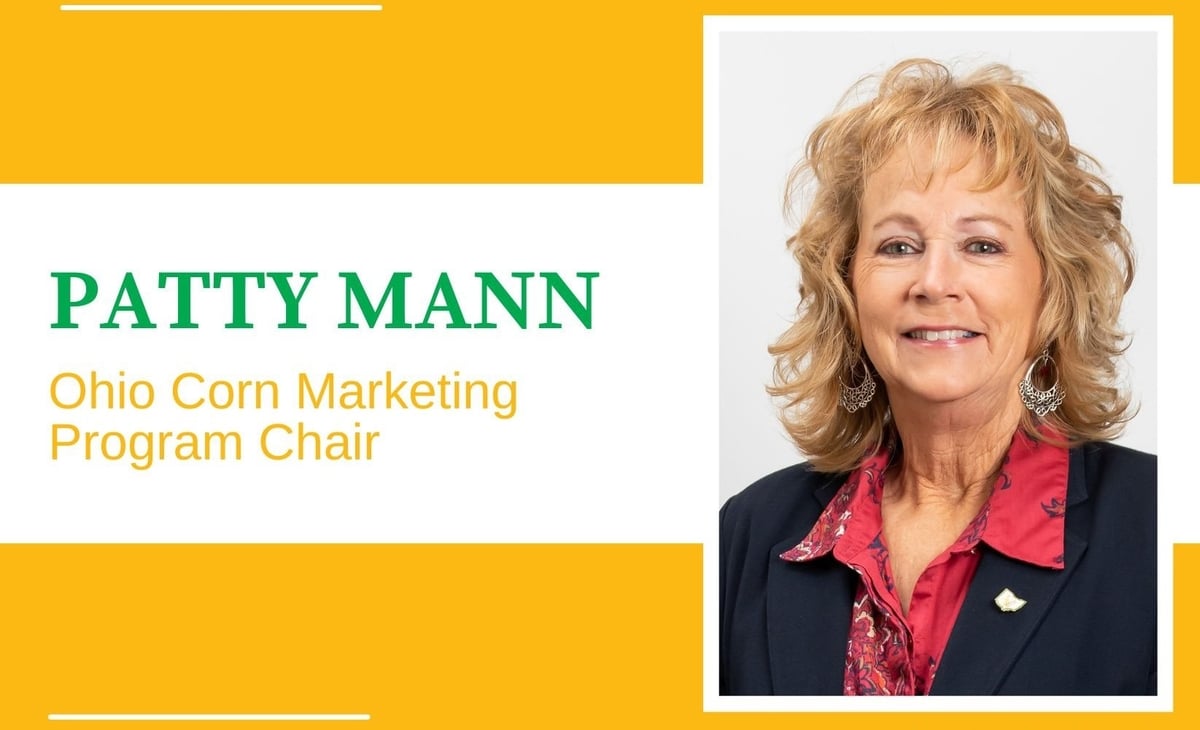
"For nearly 40 years, my husband, Dave, and I have operated Mann Farms, located in Jackson Center, Ohio. Our farm business, like many others in Ohio, is a family affair. We are living proof that trade has an impact on the ability of family farms to grow, adapt, and pass opportunity on to the next generation.
One in 8 jobs in our state is supported by the agriculture industry. Each year, Ohio-grown products are exported to over 100 countries, with corn, ethanol, and distillers dried grains with solubles (DDGS) among the top export items. Agriculture is Ohio's leading industry, with an annual economic impact of $124 billion.
When it comes to corn, Ohio ranks as the seventh-largest producer in the country. So, it's no surprise that you've chosen to be here today. Our state represents the heartbeat of corn farmers in America, with the infrastructure, innovation, and production capacity to match.
As Chair of the Ohio Corn Checkoff, I work every day to assist my fellow growers in finding new markets and creating opportunities for the more than 586 million bushels of corn harvested in our state last year. Trade isn't just economic, it's essential. It sustains our farms, supports our communities, and builds a stronger future for rural Ohio.
In America, corn is one of the most versatile crops we produce. It fuels and feeds our families and farms. And, it has increasingly become just as vital on the global stage.
In Ohio, we take real pride in doing things the right way. We care about the land; we're always finding ways to improve, and we utilize the latest tools and technology to care for our crops and the environment. And every fall, when we bring in the harvest, we know it's more than just corn. It's a reflection of our values - our commitment to quality, to reliability, and to doing our part to help feed and fuel a growing world.
Vietnam is one of the fastest-growing markets in Southeast Asia, and these MOU signings mark the start of a new chapter in trade, collaboration, and mutual benefit."
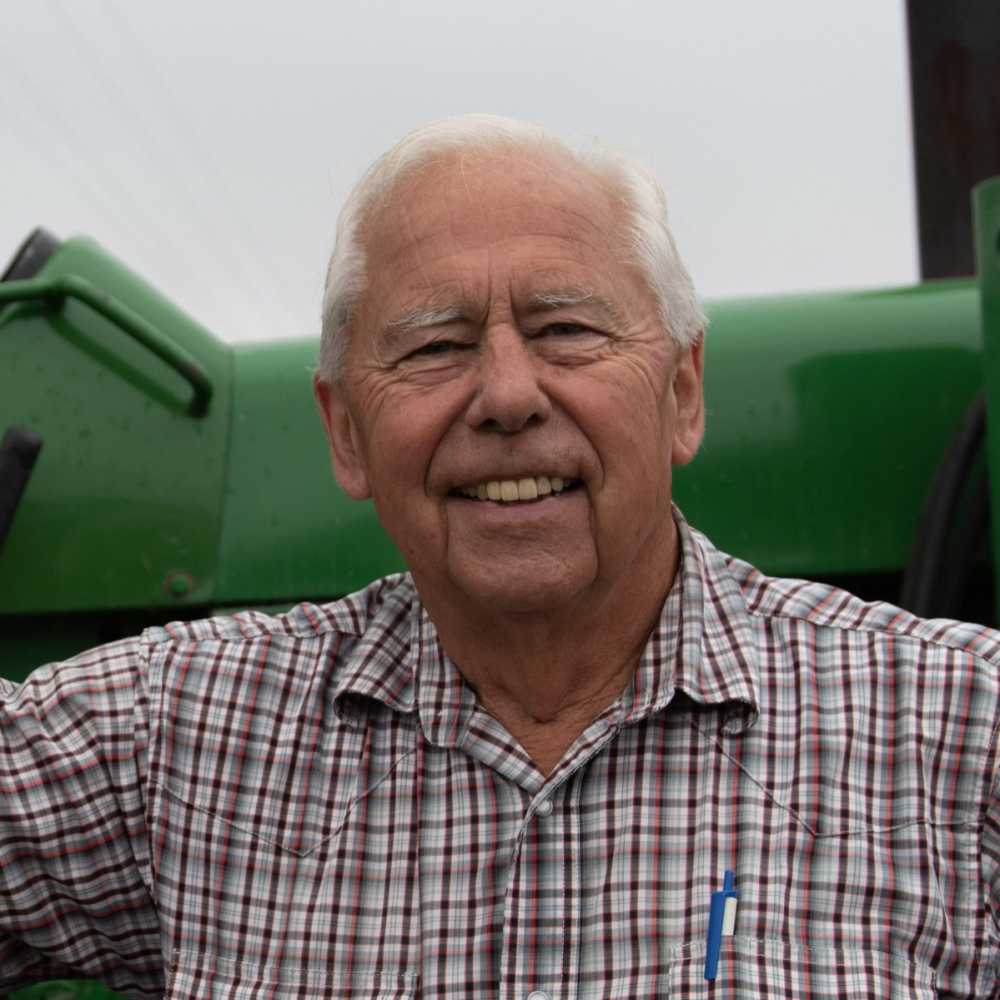
“The Ohio Soybean Council (OSC) works on behalf of Ohio’s 25,000+ soybean farmers to invest in initiatives that will grow opportunities for future generations of farmers. We achieve this through plant research collaborations with nationally ranked universities, such as The Ohio State University, to advance the soybean industry.
Ohio is one of the top soybean-producing states in the nation. In 2024, Ohio soybean farmers produced over 6.8 million metric tons of soybeans. Soybeans are the number one agricultural export for Ohio. Sixty percent of soybeans are exported while the other 40% is crushed in-state for livestock feed and export feed ingredients.
Ohio is also a leader in the soybean processing industry. Last year, a Cargill crush facility in western Ohio doubled their capacity and now can process 1.6 million metric tons of soybeans annually.
In any given year, Ohio soybean farmers dedicate 4-12% of their acres to non-GMO soybean production. These beans are then exported to Asian countries for the production of tofu, soy milk, and other popular soy foods.
Maintaining identity preservation of these products is done with diligent care and access to containers. As a major transportation center, Ohio has access to a consistent supply of containers for shipping soybeans and soybean meal to international buyers. We are already the second largest exporter of soybeans in containers and hope to expand this volume through our partnership with Vietnam."
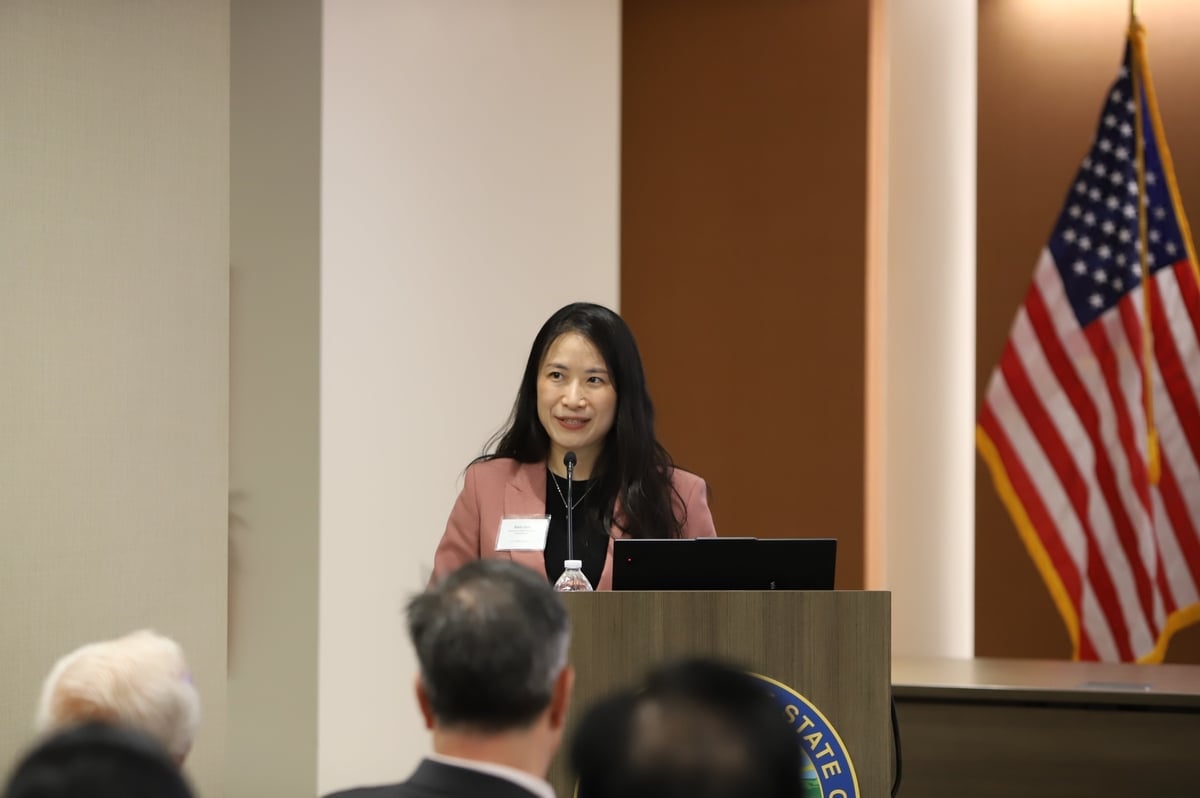
“When we first opened our representative office in Ho Chi Minh City in 1994, we could hardly have imagined the extraordinary partnership we celebrate today. Vietnam has become one of our most valued partners, growing to be the U.S.' 10th largest agricultural export destination and most remarkably, a top customer for U.S. distillers grains, importing over 1 million metric tons last year.
Over the past three decades, both sides have built their relationship on a solid foundation of trust, consistent quality, and mutual benefits. We especially appreciate Vietnam’s commitments to importing high-quality corn and DDGS products from the U.S. These products fuel Vietnam's growing animal feed industry, supporting your goal of feeding over 100 million people and strengthening food security.
The Ohio Corn Marketing Program is a significant investor in the U.S. Grains Council, and we deeply appreciate their continued support of our work in Vietnam. Together, we've built relationships based on trust, quality, and mutual benefit that span three decades.
In the spirit of our long friendship and partnership built on mutual benefit, I would like to respectfully raise one technical matter that could significantly enhance our trade relationship. Vietnam's current fumigation requirements for U.S. corn, DDGS, and sorghum imports create several challenges that we hope can be addressed together.
Given our shared history of successful trade, the consistently superior quality of U.S. agricultural products, and the rigorous standards our exporters maintain, we respectfully hope Vietnam will consider easing or eliminating these fumigation requirements. Such an action would benefit Vietnamese importers through reduced costs while facilitating the increased trade volumes that today's MOUs represent.
The U.S. Grains Council stands ready to continue supporting Vietnam's agricultural development through capacity building, technical assistance, and connecting our agricultural communities.
We respectfully thank Minister Do Duc Duy and Deputy Minister Hoang Trung, for your continued partnership. Together, we are building a more food-secure future for both our nations."
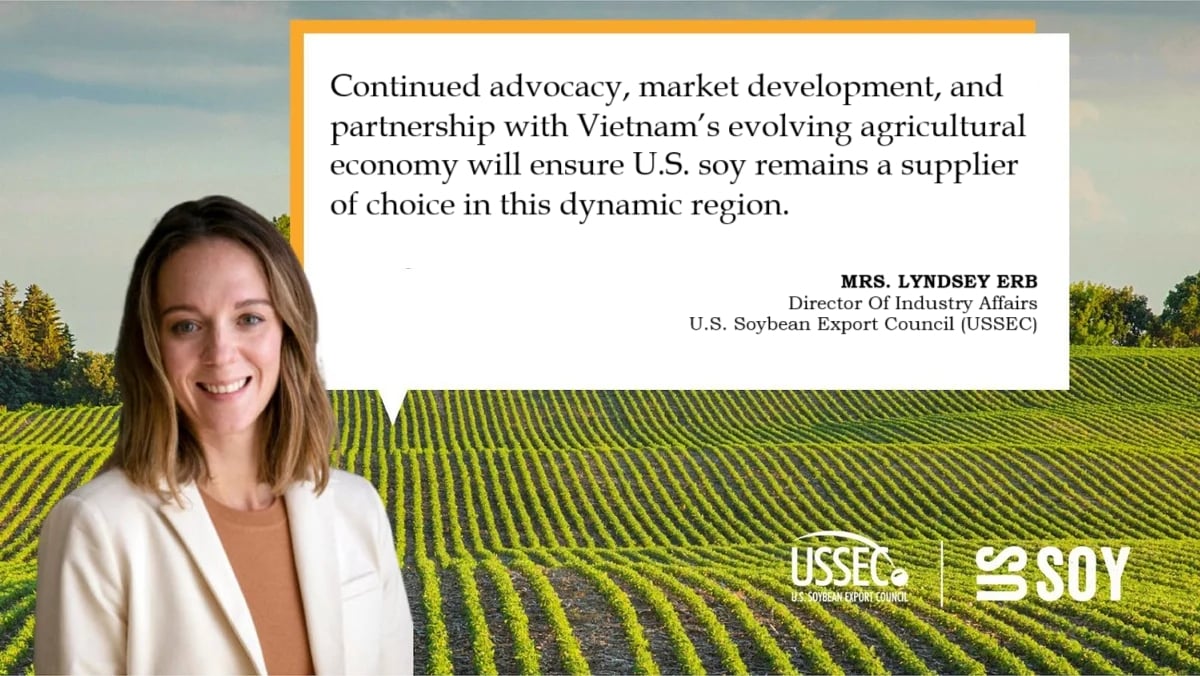
"Vietnam presents a dynamic and rapidly expanding market for U.S. soybeans and soybean meal. The country has become Southeast Asia’s third-largest importer of U.S. Soy. In 2024, the U.S. exported $845 million worth of soybeans and soy products to Vietnam, comprising whole beans, meal, and oil.
Vietnam ranks 4th globally in aquaculture production and accelerates growth rate of urbanization. The demand of soybean meal and the animal food industry is projected to double in market size by 2028.
To maintain and grow U.S. soy’s share in Vietnam, USSEC intends to work with Vietnamese regulators to streamline biotech approvals and clarify inspection protocols and strengthen relationships with Vietnam’s new crushing facilities to secure long-term supply agreements.
Vietnam is a strategic growth market for U.S. soy, offering high-volume, long-term demand across feed, food, and industrial segments. While challenges remain in trade policy, logistics, and competition, the U.S. Soybean Export Council is well-positioned to deepen engagement and unlock further potential. Continued advocacy, market development, and partnership with Vietnam’s evolving agricultural economy will ensure U.S. soy remains a supplier of choice in this dynamic region."
Translated by Kieu Chi
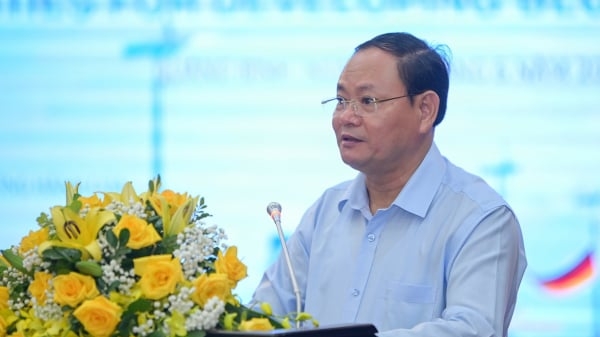
(VAN) The workshop in Quang Binh is expected to pave the way for developing a blue ocean economy, driven by institutional reforms, planning, and policies such as Decree 65 on offshore wind power.
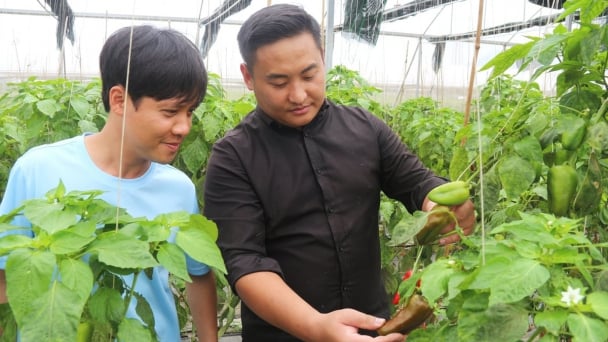
(VAN) By applying science and technology and embracing natural farming practices, Dako Farm’s agricultural products meet the stringent standards required for export to the South Korean market.
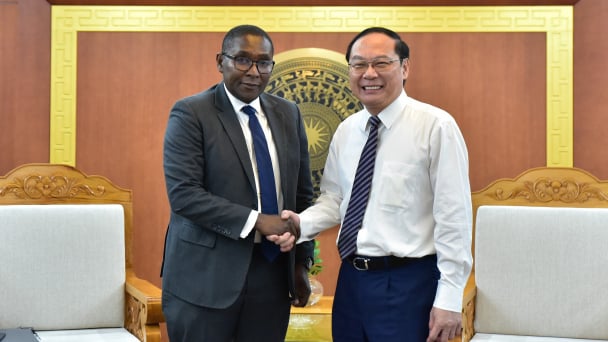
(VAN) The United Nations acknowledges Vietnam's efforts and pledges to support investment in restructuring the energy system in an efficient and sustainable manner.
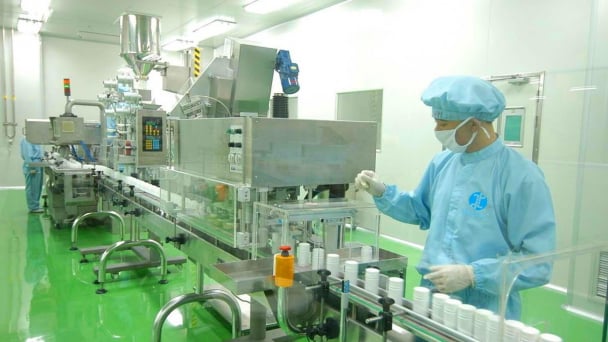
(VAN) With the EU's carbon tax taking effect in 2026, many Vietnamese enterprises are compelled to transition to cleaner technologies, or else face exclusion from the global supply chain.
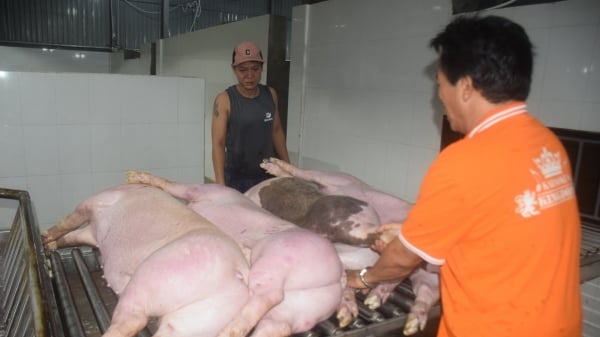
(VAN) Dak Nong finds it difficult to develop concentrated animal slaughterhouses due to the lack of capital, management mechanisms and synchronization.

(VAN) Ministry of Agriculture and Environment aims to sign trade agreements to elevate Vietnam-US agricultural trade cooperation, targeting terms that bring mutual benefits to both parties.